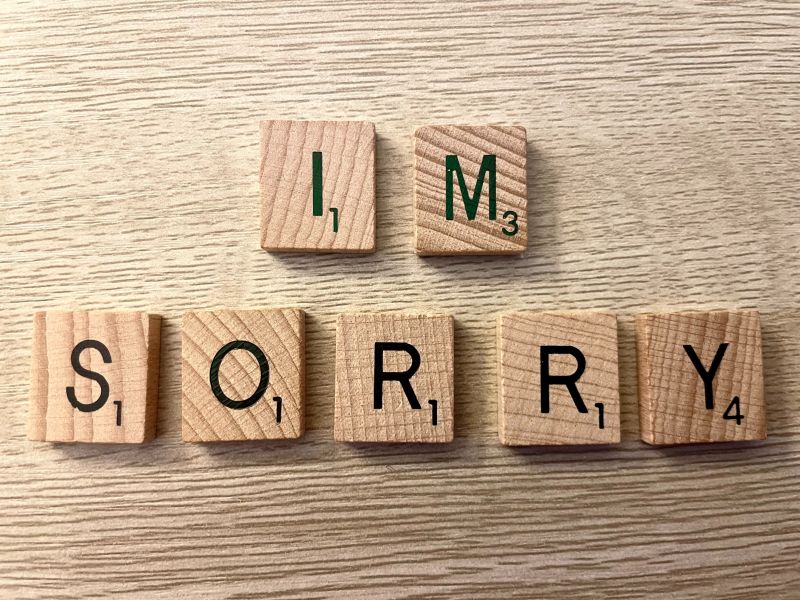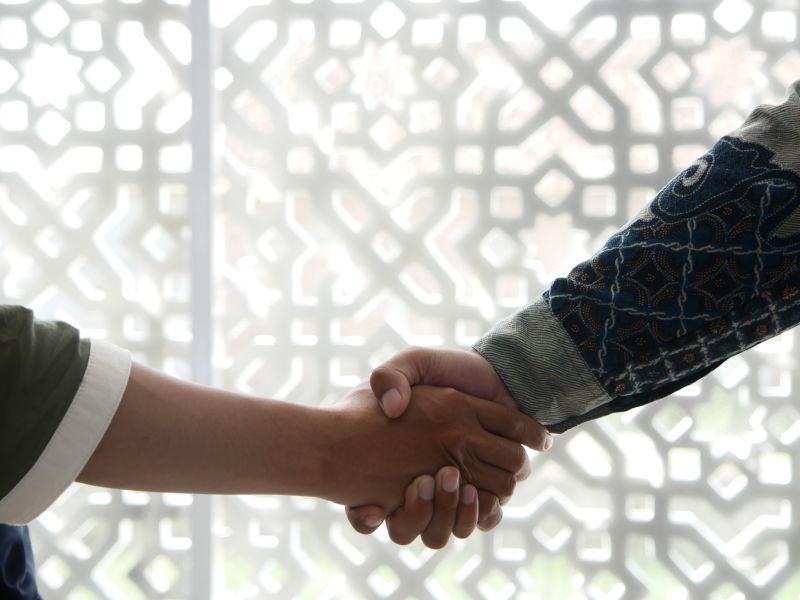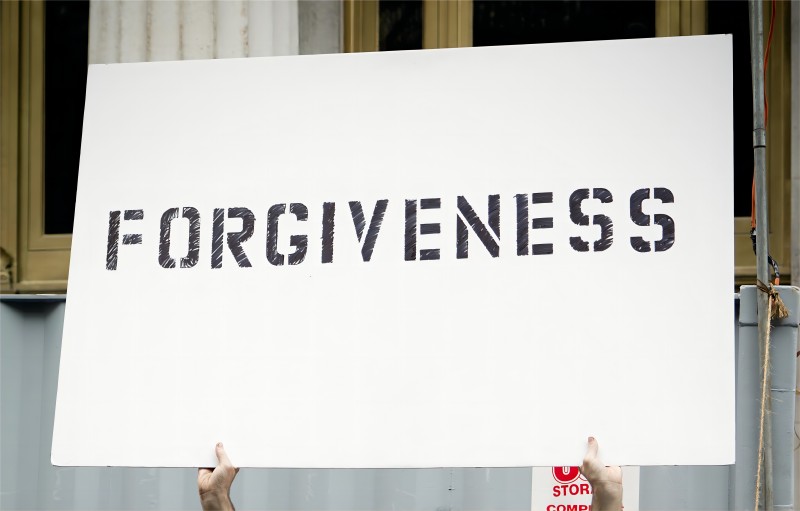Reconciliation and forgiveness are vital tools for maintaining healthy relationships. They have the ability to repair damaged relationships. Putting our anger against someone to rest is part of forgiving them. While reconciliation involves rebuilding broken relationships. By forgiving, we let go of all the negative feelings. But conflicts may arise that may lead to strains and tensions.
One must resolve these as soon as possible. Otherwise, they may lead to the breakdown of that relationship. So, finding ways of forgiveness and reconciliation is important.
Forgiveness is about letting your anger go, even if someone wronged you. You must release your desire for revenge and avoid holding onto negative feelings. But you must also restore that relationship. This is possible if you address the issues that led to the conflict.
You must know that forgiveness may not lead to reconciliation. The reason is that the latter requires the engagement of both parties. They must come together and communicate.
Let’s take a look at some of the benefits of forgiveness and reconciliation. Also, see how one can identify the root causes of conflicts.
The Benefits of Forgiveness and Reconciliation
Forgiveness and reconciliation influence not only relationships but also your well-being. That is why it should be common practice to forgive someone and restore the relationship. Here are some of the psychological and emotional benefits of forgiveness and reconciliation:
Reduced Anxiety and Stress
Once you end negative feelings such as bitterness, your stress level gets lowered. When you plan to forgive someone, you let go of unfavourable thoughts and feelings. Those feelings could otherwise result in long-term stress and anxiety. So, even if the conflict was a huge one, the end result would be in your favour.
Increase Compassion
Reconciliation and forgiveness can increase one's capacity for compassion and empathy. When we are able to forgive someone, we can see them as flawed individuals with their own weaknesses. Reconciling with someone enables us to comprehend their viewpoint. It also helps us see things from their point of view, which is the need of the hour. This gives rise to empathy as well.
Improved Mental Health
Both forgiveness and reconciliation enhance mental health by lowering signs of depression. They also boost feelings of self-worth and enhance life satisfaction. With that, your sense of belonging to others also gets improved. And you become clear about a specific relationship.
Let's say that a dispute has started between two best friends due to a misunderstanding. Both of them won’t feel good because they share a lot of things with each other. The best way for them to sort this out is to have a conversation. They should also express their feelings and apologize to each other. The same goes for a husband and wife, son and dad and other close relationships.

How important is it to identify the root causes of conflicts?
Rebuilding a relationship requires you to identify the root causes of problems. And with that, you may avoid such conflicts in the future with your loved ones. Moreover, understanding the situation will help both the people get a perspective. It'll lead to a more effective resolution that wouldn’t have been possible otherwise. So, you may look at some of the important techniques for identifying the root causes.
- Active Listening
Active listening or paying attention to the other person can help figure out the root causes. To make sure you comprehend the other person's viewpoint, you may ask questions as well. Clarifying a statement is also a part of it.
- Reflective Writing
Another way of understanding what led to the conflict is to sit down and think. You may also write your perspective, thoughts and feelings. You may also write about the impact this situation had on you. It will bring clarity to identify who made a mistake.
- Taking Responsibility
Most relationships end in such a way that both parties end up blaming each other. And none of them take the responsibility. If you acknowledge your part in the conflict, the issue may get resolved sooner.
The Process of Forgiveness
Forgiveness is a process that requires you to be brave and forget whatever hurt you. The first step in this process is to acknowledge the pain that made you angry and frustrated. But the next step is a bit more difficult: empathizing with the next person. Understand the other party’s emotions and perspective also.
The third step is a courageous one and involves forgiveness for your counterpart. Let go of all the negative feelings without holding onto the hurt.
The final stage of this process is to focus on the present and forget who wronged you in the past and why. Though you may remember the conflict whenever you get to see the other person, it’s all a part of life. Try to cope with it.
Some of the tips to practice forgiveness include:
- Forgive Yourself First!
Forgiving yourself is as important as forgiving others. It is because you aren’t the only one involved in the conflict. Making mistakes is fine but realizing that is what the need of hour.
- Seek Support!
Forgiveness is not something you can do with ease. So, you must ask for support from your family, friends or a therapist to tackle the situation.
- Be Patient
You shouldn’t expect your anger to go right after a heated argument or conflict. Take your time to work through the emotions and then move towards the next step.
- Focus on Positive Things!
Don’t let the conflict distract you from the positives happening in your life. Let go of all the negative things and focus on moving forward.
So, you must practice self-forgiveness first and then see who wronged you.

The Process of Reconciliation
The process of forgiveness is challenging. But it is not as difficult as reconciliation. The reason is that you must go against your ego to perform it. Acknowledging the problem is the very first step. Both parties should come to the point that there is a problem that needs to end. Each individual must be accountable for their specific contribution to the issue.
Speaking about how they feel about the situation is the next step for both parties. This can assist in resolving any misunderstandings. It also helps both parties in understanding one another's viewpoints.
Besides, both parties might have to compromise to come to an agreement. This may involve developing a solution that works for them. Trust-building requires time and effort. It might involve doing small deeds of kindness or keeping your word after commitment.
Following are some tips to communicate well to rebuild trust:
- Be Honest!
Honesty is the key to a healthy relationship and to build trust. You must be truthful about your intentions and feelings for the next person.
- Be Respectful!
Even if you disagree with the other person's feelings and opinions, you must show respect for them. Maintaining composure, and avoiding losing your temper during an argument is critical. By doing so, you can keep the conversation on track and prevent things from getting worse.
So, these simple techniques will help you communicate and rebuild trust.
Overcoming Obstacles to Forgiveness and Reconciliation
Both forgiveness and reconciliation are difficult to navigate. But important to build healthy relationships and move forward. But there might be certain obstacles you’ve to face during these processes. Here are some of those obstacles, along with the strategies to overcome them.
Fear of Vulnerability
We should be open about our emotions and experiences to forgive and reconcile. It's important to recognize and accept the feelings of vulnerability. Try journaling those feelings and engaging in healthy exercises that encourage self-compassion.
Inability to Communicate
Clear and honest communication is essential to rebuild trust. Both parties must come together to discuss how they feel about each other after the conflict. Active listening also plays its part. You can give the other person your full attention while trying to understand their point. You can also work on assertive communication, which will clarify the entire argument.
Lack of Trust
The process of reconciliation is all about rebuilding trust. But this can be difficult if it didn't end well before. Setting up boundaries and expectations for the relationship in the future may help. This may involve expressing clear expectations and engaging in open communication. Also, taking responsibility for all the actions and decisions is a part of this agreement.
So, these obstacles may arise in one way or another, and you must prepare yourself to overcome them at any moment.
When to seek Professional Help to resolve Conflicts?
You must seek professional help to resolve conflicts when they are causing distress. This is also necessary when there are complex issues, or the other person is too stubborn. Some instances when it is necessary to seek help from a therapist include:
- When there are threats of harm
In situations where there is a risk of any harm, you must seek professional help. For this, you must contact your family and friends.
- When the conflict is affecting your mental health
Some conflicts cause stress, depression, or other mental health issues. Visit a therapist is the best option under such circumstances. Perform exercises he/she recommends and stop thinking about the matter.
- When communication has broken down
Sometimes, parties involved in the conflict don't even try to communicate. So, it is necessary to seek help from a mediator or therapist. He/she will help both parties work towards a resolution.
- When the conflict involves legal or financial issues
You may find yourself in a situation where legal actions become the need of the hour. So, you must seek the advice of a lawyer or financial professional. This is necessary to ensure that everyone feels protected.
There is no right or wrong time to seek professional advice or help. When things start to go out of hand, ask for help from a therapist.

How to Maintain Healthy Relationships and Prevent Conflicts?
Maintaining healthy relationships with others is a key aspect of human life. Having supportive relationships can influence our mental health and well-being. Here are some reasons why maintaining healthy relationships is essential:
- Support
Good relationships provide you with emotional support. They also help you navigate through difficult times. And you get a sense of safety and security. They also boost your self-esteem and confidence which is what you need in difficult times.
- Mental health
Healthy relationships can improve your mental health. They increase your feelings of happiness and contentment.
- Physical health
Studies have shown that maintaining healthy relationships can impact our physical health. It also reduces the risk of heart disease and other chronic illnesses to a large extent.
Here are some tips on how to maintain healthy relationships:
- Communication
Good communication is key to any relationship. Be with your partner and listen to their thoughts, opinions and feelings. Treat them with respect, even in difficult situations. Also, respect their boundaries and privacy.
- Compromise
Be willing to compromise, forgive and move past all the disagreements. Holding grudges can damage even the strongest relationships in the long run.
- Quality time
Spend quality time with your loved ones. It doesn't matter whether it’s through shared hobbies or having meaningful conversations.
- Appreciation
Show appreciation and gratitude for the precious people you have in your life. Let them know how much you respect and value them.
By following the tips mentioned above, you can build and maintain healthy relationships.

Conclusion
In conclusion, forgiveness and reconciliation are vital in repairing and maintaining healthy relationships. If you keep holding grudges and refuse to forgive, it'll lead to resentment. This ends up damaging even the strongest of your relationships.
Forgiveness is a choice that can bring healing and freedom to both parties. And with it, they can move forward with courage. It requires vulnerability and willingness to let go of past hurt and pain caused by your loved ones. But by practicing forgiveness and reconciliation, you can foster stronger relationships.
So, start implementing forgiveness and reconciliation in your life. Also, create a more positive and loving world for others. Forgiveness is not always easy, but it is always worth it.


